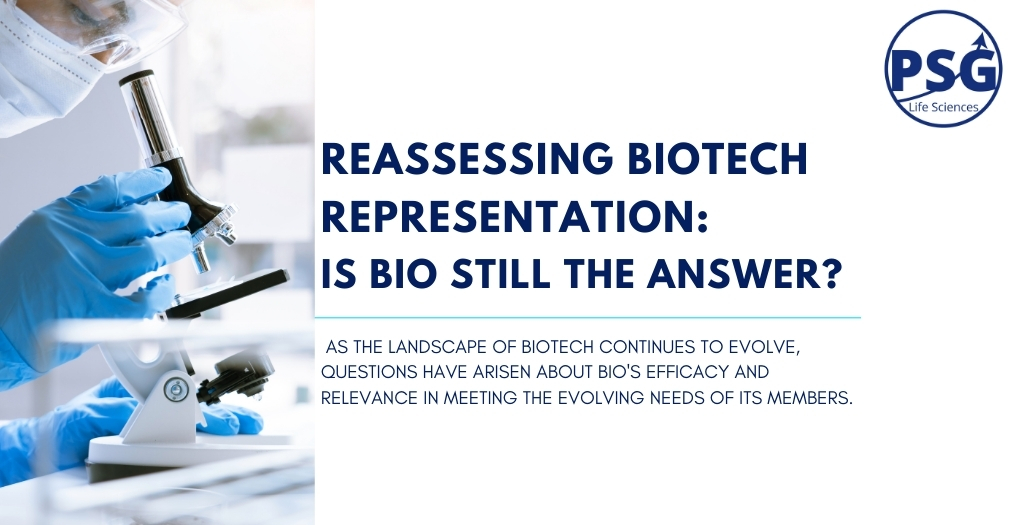In the dynamic world of biotechnology, where progress is measured in breakthroughs and innovation is the currency of success, the role of industry associations is critical. These organizations serve as the collective voice of the industry, advocating for policies and resources that propel innovation and growth. Among them, the Biotechnology Innovation Organization (BIO) has long been regarded as a central figure in representing the interests of life science companies. However, as the landscape of biotech continues to evolve, questions have arisen about BIO’s efficacy and relevance in meeting the evolving needs of its members.
A Legacy of Advocacy
Established in 1993, BIO has played a pivotal role in shaping the trajectory of the biotech industry. From advocating for favorable regulatory environments to facilitating partnerships and fostering innovation, BIO has been instrumental in advancing the interests of its members on a global scale. For many years, it has served as a trusted ally and advocate for life science companies, providing a platform for collaboration and engagement.
The Changing Face of Biotech
While BIO’s contributions to the biotech industry are undeniable, the landscape of biotechnology has undergone significant transformation in recent years. As the industry has matured, so too have the needs and priorities of its members. Several factors have contributed to this shift:
- Diverse Sectoral Demands: The biotech industry encompasses a diverse array of sectors, including pharmaceuticals, CROs, medical devices, agriculture, and industrial biotech. Each sector has unique regulatory challenges, market dynamics, and technological requirements that may not be adequately addressed by a one-size-fits-all approach.
- Rapid Technological Advancements: The pace of technological innovation in biotech is relentless, with breakthroughs in areas such as gene editing, synthetic biology, and precision medicine reshaping the industry. Keeping pace with these advancements requires specialized expertise and targeted advocacy efforts.
- Globalization and Localization: Biotech companies operate in an increasingly globalized marketplace, navigating complex regulatory landscapes, trade agreements, and market dynamics. At the same time, the importance of local ecosystems and partnerships cannot be overlooked, especially in emerging biotech hubs.
- Emergence of New Players: The biotech ecosystem is continually evolving, with new players entering the fray, including startups, academic institutions, and non-traditional stakeholders. These new entrants bring fresh perspectives and priorities that may not align with the traditional focus of trade associations like BIO.
A Call for Reevaluation
In light of these changes, some voices within the biotech community have begun to question whether BIO remains the most effective vehicle for representing the interests of life science companies. While acknowledging BIO’s historical contributions, they argue that a more agile, specialized, and decentralized approach to advocacy may better serve the diverse needs of the modern biotech landscape.
Looking Ahead
The future of biotech representation lies in adaptability, specialization, and collaboration. Industry associations must evolve, embracing new technologies, fostering diverse perspectives, and engaging with stakeholders at all levels. While BIO has been a stalwart champion of biotechnology, the time may have come for a reassessment of its role and effectiveness in meeting the evolving needs of its members.
Conclusion
The Biotechnology Innovation Organization has long been a cornerstone of advocacy for the biotech industry. However, as the landscape of biotechnology continues to evolve, so must the model of representation. By embracing adaptability, specialization, and collaboration, Bio can ensure that the voice of biotechnology remains strong and impactful in the years to come.
Contact usStephen Manobianco – Managing Director
Takeda said to have left industry trade group BIO. MSN. (n.d.). https://www.msn.com/en-us/money/markets/takeda-said-to-have-left-industry-trade-group-bio/ar-AA1nFIhW?ocid=msedgntp&pc=NMTS&cvid=748ab42fce61476689bbc34fafb273a4&ei=38

